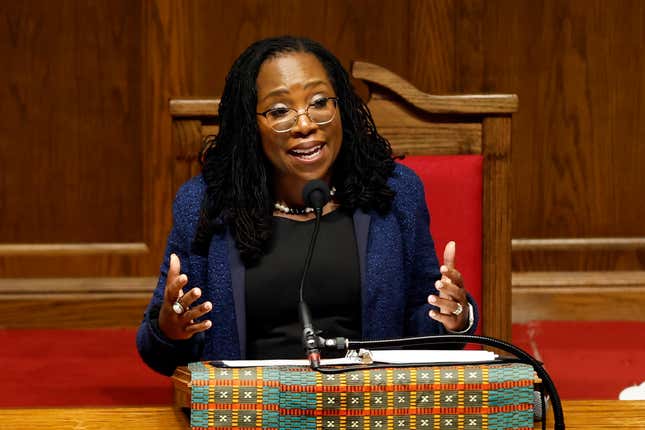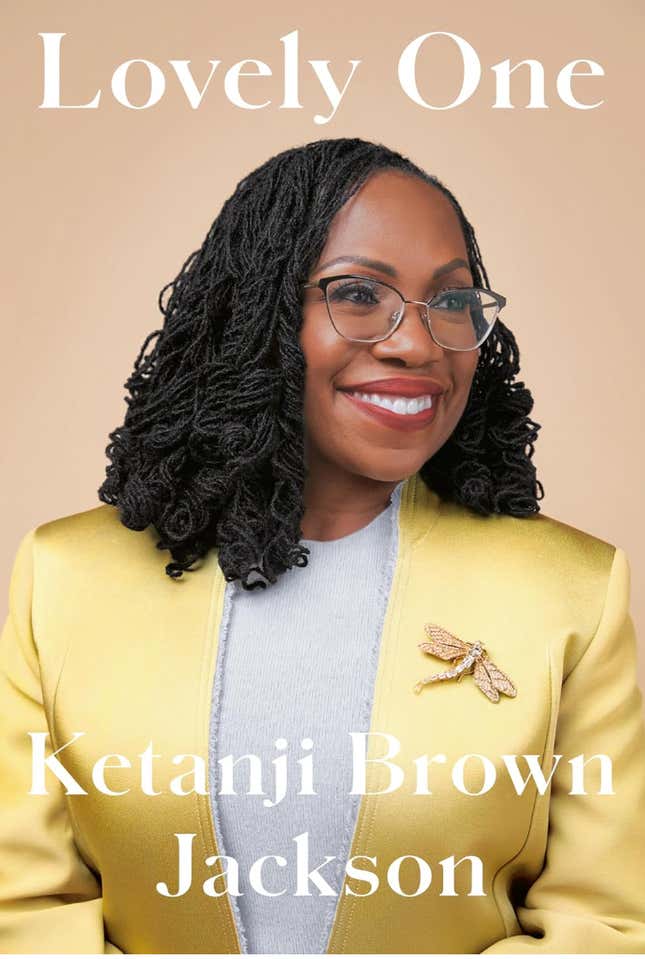
The Honorable Ketanji Brown Jackson made history when she became the first African American female Justice on the United States Supreme Court in June 2022.
But Justice Jackson says she wouldn’t be where she is today without her parents and mentors who poured values into her like the importance of determination and hard work. She writes about those values and more in her new memoir “Lovely One,” a love letter to those she credits with helping her shatter the glass ceiling. The title is a direct translation of her given first and middle names – Ketanji Onyika.
In an exclusive interview with The Root, Justice Jackson shared how she kept the faith on her journey to the Supreme Court and some of the best advice she received along the way.

Justice Jackson says her parents, both public school teachers, were firm believers in the value of education, adding that it was her father, who decided to go to law school when she was young, who introduced her to the idea of pursuing a career in law herself.
“Some of my very first memories are sitting at the kitchen table in our apartment on the University of Miami law school campus with him studying and me with my coloring books,” she said. “I always thought about law and my parents just never gave me the option of not doing anything that I wanted to do. They instilled in me that kind of grit and determination, so I just kept putting one foot in front of the other.”
But while she was forging ahead towards her goals, Justice Jackson admits there were roadblocks along the way, including people who didn’t make it easy for her to take her place on the Supreme Court – something evident during her often contentious confirmation hearings before the Senate.
“I was fortunate to have very good people who worked with me to prepare me for the hearings, including a White House staffer who at one point said ‘You can get angry or you can be a Supreme Court Justice,’ and that stuck with me because it really made a difference,” she said.
Justice Jackson says she saw those hearings as an opportunity to show her ability to keep her cool under pressure, which is a huge part of the job description.
“You’re going to face things on the bench that may make you want to scream, but you can’t do that. And so I wanted to portray what I think is my ability to respond to things with an even temperament.”
While she understands the importance of her historic appointment, Justice Jackson says she can’t forget those who paved the way for her, including Constance Baker Motley, the first Black female federal judge, who she calls her “forever role model” and Thurgood Marshall, the first African American Justice on the Supreme Court.
“I have his clock in my office, and it’s a wonderful connection to him and his legacy on the court,” she said. “I feel like I have the responsibility to serve the American people to the best of my ability. That’s my duty as a judge.”
Justice Jackson says she hopes readers will feel uplifted after reading her book and understand how grateful she is to have the unique opportunity to serve on the highest court in our nation – a position she has worked towards her entire life.
“I was to give advice [to someone reading this book], I would tell them what I told my daughters in my speech during my investiture before the District Court, ‘work hard, be kind, have faith and know that anything is possible.’”

